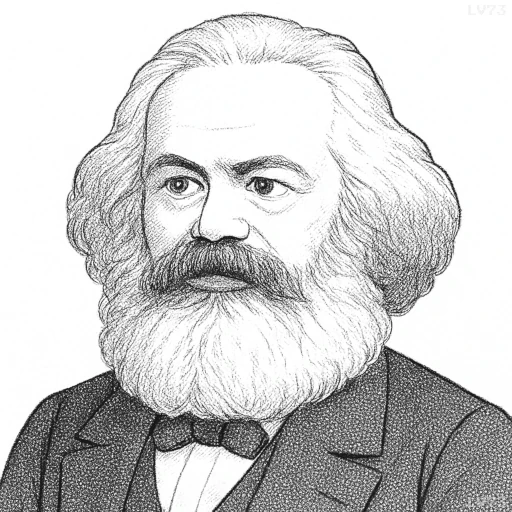“Revolutions are the locomotives of history.”

- May 5, 1818 – March 14, 1883
- Born in the Kingdom of Prussia (Germany)
- Philosopher, economist, political thinker
table of contents
Quote
“Revolutions are the locomotives of history.”
Explanation
In this quote, Marx compares revolutions to locomotives, emphasizing their transformative and powerful role in shaping history. Just as locomotives drive forward the momentum of trains, revolutions propel society through periods of rapid change, often overturning existing political, social, and economic systems. For Marx, revolutions are the driving force of historical progress, which disrupt the status quo and create new conditions for the development of society. These moments of upheaval, though violent or chaotic, are necessary for the advancement of humanity, as they clear the way for new social structures and ideas to emerge.
Historically, Marx viewed revolutions, particularly those driven by the working class, as inevitable outcomes of the contradictions within capitalist society. He believed that as the working class (proletariat) became increasingly aware of their exploitation, they would rise up to overthrow the ruling class (bourgeoisie), resulting in a transformation of society. Revolutions were seen as the means by which the old order—in this case, capitalist systems—would be dismantled and replaced by a new, more just system: socialism, eventually leading to communism. Marx saw these dramatic shifts as essential to the progress of history, though not without conflict or resistance.
In modern times, this view of revolutions as catalysts for change is still relevant in understanding movements that challenge established power structures. For instance, revolutions and uprisings, from the Arab Spring to recent protests for racial and economic justice, can be seen as responses to deep systemic issues, such as inequality, authoritarianism, or social injustice. While these revolutions may not always result in immediate or long-term success, they serve to highlight the discontent and desire for transformation within societies, acting as key moments that can lead to lasting societal shifts. Marx’s statement underscores the notion that revolutions are not just moments of destruction, but also of creation, driving historical progress forward.
Would you like to share your impressions or related stories about this quote in the comments section?
